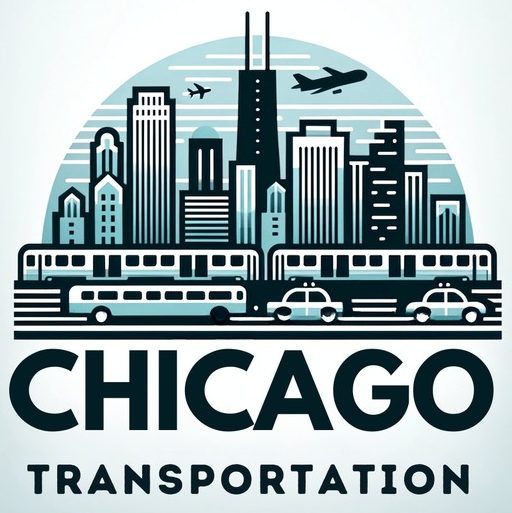A new study reveals the significant impact of Metra Commuter Rail on reducing traffic congestion in the six-county region it serves. With 74 percent of commuters choosing to take the train instead of driving, there are fewer cars on the road, leading to less highway congestion and a range of benefits.
The reduction in congestion not only results in a decrease in traffic accidents but also lowers roadway maintenance costs and reduces air pollution. Each Metra rider represents an annual benefit of nearly $4,700 to non-riders, contributing to the overall well-being of the region. Moreover, each one-way trip to or from downtown on Metra provides congestion relief of $6.40 to Chicago-area highway users.
Considering the millions of Metra riders each weekday, the region experiences an annual savings of $681.5 million due to the impact of Metra Commuter Rail on traffic. However, to continue enjoying these benefits, adequate funding for Metra’s operations and capital is essential.
Key Takeaways:
- Metra Commuter Rail significantly reduces traffic congestion in the Chicago region.
- Choosing Metra over driving leads to a range of benefits, including fewer accidents, lower roadway maintenance costs, and reduced pollution.
- Each Metra rider represents an annual benefit of nearly $4,700 to non-riders.
- Every one-way trip on Metra provides congestion relief of $6.40 to Chicago-area highway users.
- Metra Commuter Rail contributes to an annual savings of $681.5 million due to reduced traffic.
Importance of Adequate Funding for Metra Commuter Rail
Ensuring adequate funding for Metra Commuter Rail is crucial for its long-term viability and the continued benefits it provides to the Chicago metropolitan region. The current state subsidy falls short of sustaining Metra’s operations in their current form, making it imperative for the public and policymakers to recognize the economic value of the commuter rail system and support its funding.
The economic benefits generated by Metra exceed the state subsidy, highlighting the immense value it brings to the region. The study shows that each Metra rider represents an annual benefit of nearly $4,700 to non-riders, contributing significantly to the overall well-being of the area. Additionally, each one-way trip to or from downtown on Metra provides congestion relief of $6.40 to Chicago-area highway users. These savings amount to an annual total of $681.5 million, underscoring the positive impact of Metra on traffic and the economy.
Without sufficient financial resources, the Metra system could deteriorate and be forced to downsize, resulting in the loss of all the benefits it currently provides. To maintain and improve Metra Commuter Rail’s services, alternative sources of funding must be secured. This ensures that the commuter rail system can continue to reduce traffic congestion, decrease pollution, and contribute to the overall well-being of the region. By recognizing the importance of adequate funding for Metra, we can ensure its long-term viability and the continued benefits it provides to commuters and the Chicago area as a whole.
The Economic Impact of Metra Commuter Rail
The economic impact of Metra Commuter Rail extends far beyond transportation. It plays a vital role in reducing traffic congestion, lowering roadway maintenance costs, and decreasing air pollution. The commuter rail system’s importance cannot be understated, and it is essential that we prioritize its funding to maintain and improve its services.
With millions of riders each weekday, Metra represents a significant annual benefit to non-riders and Chicago-area highway users. The economic value generated by Metra far exceeds the state subsidy, reinforcing the need for additional funding sources to secure its long-term viability.
Securing the Future of Metra Commuter Rail
Investing in the future of Metra Commuter Rail is not only an investment in transportation but also a commitment to improving the quality of life in the Chicago metropolitan region. By supporting adequate funding for Metra, we can ensure its continued success in reducing traffic congestion, improving air quality, and contributing to the economic well-being of the area.
In conclusion, the importance of adequate funding for Metra Commuter Rail cannot be overstated. The economic benefits it provides, including reduced traffic congestion and lower costs for non-riders, highlight the value of sustaining and improving the commuter rail system. With continued funding support, Metra can fulfill its mission of providing safe, efficient, and reliable transportation options for commuters in the Chicago metropolitan region.
Metra’s Strategic Plan for the Future
Metra is committed to providing high-quality commuter rail service to the Chicago metropolitan region and has developed a strategic plan for the years 2023-2027 to ensure its continued success. The plan is focused on enhancing service, improving safety and reliability, fostering a diverse workforce, and increasing efficiency and effectiveness.
Metra’s strategic plan aims to enhance service by growing ridership and offering more mobility choices to commuters. The goal is to make the Metra experience safe, easy, and enjoyable for all passengers, with a strong emphasis on customer satisfaction.
Recognizing the importance of diversity, Metra seeks to attract and invest in employees from various backgrounds. By creating a diverse workforce, Metra aims to foster an inclusive environment that reflects the community it serves.
Efficiency and effectiveness are key priorities for Metra. The organization is committed to finding innovative solutions to improve operations, ensuring that resources are used optimally, and providing the best possible service to commuters. Additionally, Metra embraces its responsibility to the region and strives to be a socially responsible organization that contributes to the overall well-being of the community.

